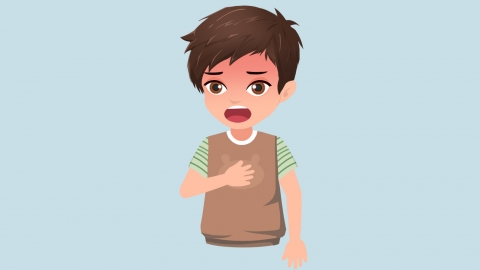What diseases may cause apneustic breathing?
Generally, diseases that may cause Biot's respiration mainly include sleep apnea syndrome, increased intracranial pressure, respiratory center depression, pulmonary heart disease, and severe hypokalemia. If Biot's respiration occurs, it is recommended to seek timely treatment at a formal hospital. Detailed analysis is as follows:
1. Sleep Apnea Syndrome
During sleep, the soft tissues of the upper airway relax and collapse, causing airflow interruption and resulting in brief respiratory pauses, which lead to Biot's respiration. Weight should be controlled to avoid obesity-induced airway obstruction. Side-lying position during sleep can reduce airway compression. Patients with significant symptoms can use continuous positive airway pressure (CPAP) under a doctor's guidance. In severe cases, uvulopalatopharyngoplasty may be performed to expand the airway space.
2. Increased Intracranial Pressure
Conditions such as cerebral hemorrhage and brain tumors can elevate intracranial pressure, compressing the respiratory center and disrupting respiratory rhythm regulation, which can cause Biot's respiration. Patients should rest in bed and avoid strenuous activities that may increase intracranial pressure. Under medical guidance, drugs such as mannitol injection, glycerol fructose injection, and furosemide injection can be used to reduce intracranial pressure. At the same time, treatment for the underlying disease should be provided—for example, brain tumors may require surgical removal.

3. Respiratory Center Depression
Overdose of sedative-hypnotic drugs or central nervous system infections may depress respiratory center function, reducing respiratory regulation and causing Biot's respiration. The use of related depressant drugs should be stopped immediately, and airway patency should be maintained. Under medical guidance, drugs such as nikethamide injection, lobeline injection, and doxapram injection can be administered to stimulate the respiratory center. Anti-infective medications should also be used to treat the underlying conditions such as infections.
4. Pulmonary Heart Disease
Long-term development of lung diseases such as chronic obstructive pulmonary disease (COPD) can lead to pulmonary hypertension, causing pulmonary heart disease, which affects respiratory function and results in Biot's respiration. Smoking cessation and avoiding respiratory irritants are essential. Under medical guidance, drugs such as salbutamol aerosol, budesonide-formoterol powder inhaler, and tiotropium bromide powder inhaler can be used to improve pulmonary ventilation. Meanwhile, medications such as spironolactone tablets, hydrochlorothiazide tablets, and digoxin tablets can be used to alleviate cardiac burden.
5. Severe Hypokalemia
Long-term fasting or vomiting can lead to severe potassium deficiency in the body, affecting respiratory muscle contraction function and interfering with signal transmission in the respiratory center, which may cause Biot's respiration. Prompt potassium supplementation is necessary. Under medical guidance, drugs such as potassium chloride sustained-release tablets, potassium magnesium aspartate tablets, and potassium chloride injection can be used to correct hypokalemia. At the same time, treatment should be given for underlying conditions such as vomiting that cause potassium loss.
In daily life, excessive use of sedatives should be avoided. Indoor air should be kept well-ventilated to prevent hypoxia. A regular diet should ensure adequate intake of electrolytes such as potassium. Patients with underlying lung or brain diseases should undergo regular follow-up examinations to monitor respiratory and cardiopulmonary function.




